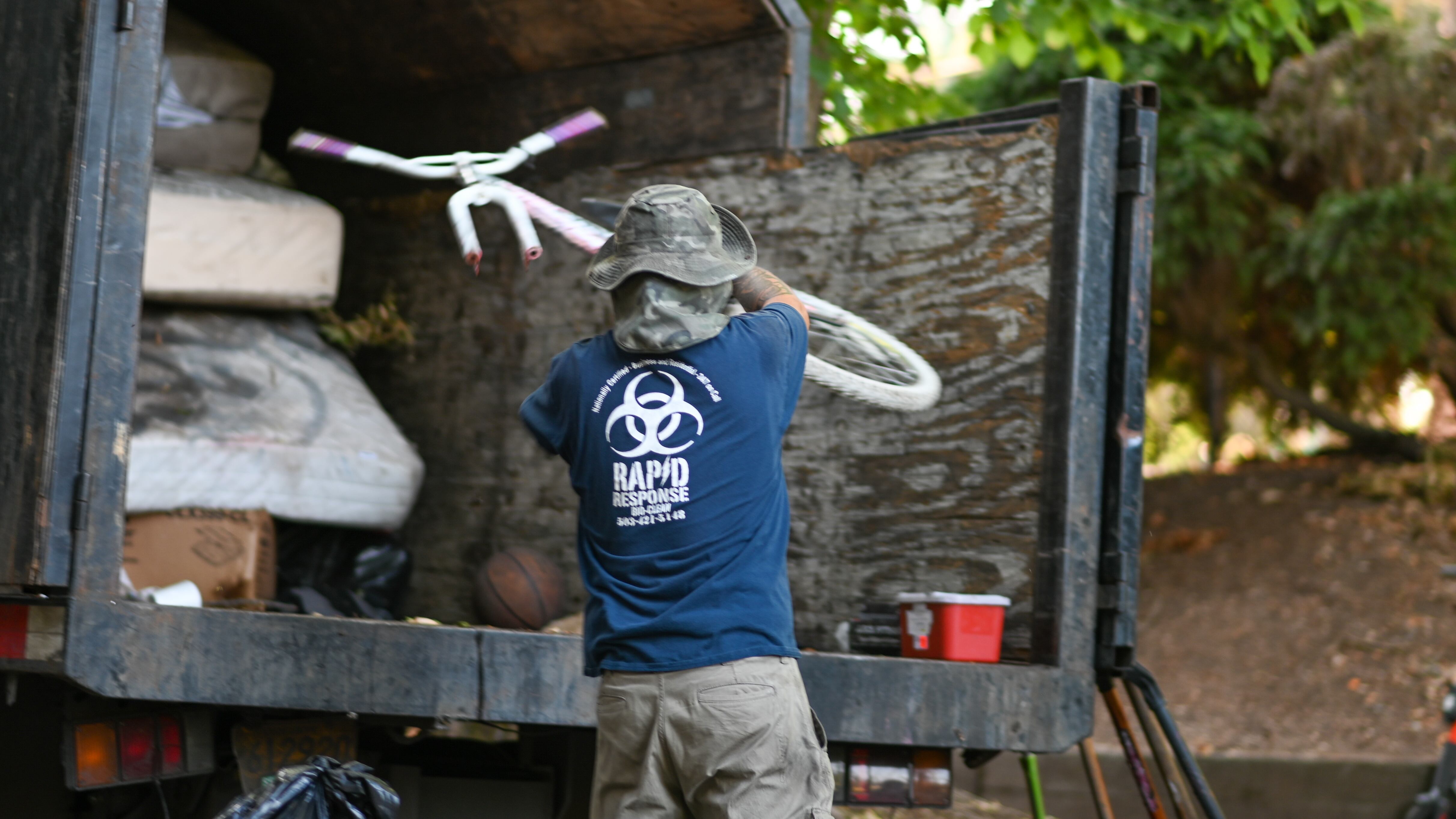A camping ban the City Council was set to vote on this week was abruptly pulled from the agenda at the request of three city commissioners as one commissioner, Rene Gonzalez, attempted to rework it.
Gonzalez’s alternative proposal sought to put all rulemaking power over the camping ban in the hands of the mayor and their city administrator, and proposed stiffer penalties for camping on public property, including up to six months in jail, should federal and state law allow it. (Meanwhile, Gonzalez himself is running for mayor.)
But since Wednesday morning, when WW first reported on the commissioner’s proposal, Gonzalez has pared it back. He’s dropped the stiffer penalties and has instead mirrored the penalties that Mayor Ted Wheeler first proposed: a $100 fine and up to seven days in jail.
That means the primary difference between Gonzalez’s and the mayor’s proposals is that Gonzalez’s would give the mayor and city administrator complete control of setting the ban’s rules.
The City Council appears split on Gonzalez’s plan. Wheeler and Commissioner Carmen Rubio have voiced strong opposition to it, but Commissioners Dan Ryan and Mingus Mapps say they’re open to learning more.
Gonzalez has taken to calling his proposal the “Gresham Model” because it’s partially modeled on a ban the city of Gresham has had in place for nearly a decade. The bedroom city’s approach to homelessness became front and center this week for the warring Portland City Council.
On Friday afternoon, top Gresham officials will come to City Hall to brief some City Council offices on their camping ban.
In an email to commissioners’ offices on Thursday, the Gresham officials laid out how their camping ban is different from that proposed by Gonzalez, the phrase “Gresham Model” notwithstanding.
“I wanted to provide some clarity surrounding Gresham’s approach and the ‘Gresham Model’ that might have been lost in the media or in translation,” Larry Morgan, Gresham’s government relations and policy adviser, wrote, adding that he wanted to clarify what the city’s ban “is and isn’t.”
Morgan wrote that Gresham’s model is focused on strong outreach and urging people to seek shelter, and that “Gresham does not subject people experiencing homelessness to fines, penalties, or criminal charges for violations of the unauthorized camping code.”
However, there’s one important caveat to that assertion: Gresham, according to its rules, does not count someone as homeless after they’ve been offered shelter.
“For the purposes of this section, ‘persons experiencing homelessness’ does not include a person camping on public property or on any public street or right-of way who has been offered shelter in accordance with applicable law and City policy,” Gresham’s ban reads.
Despite that, Jessica Harper, the city’s director of livability services, says, “Gresham does not subject people experiencing homelessness to fines, penalties, or criminal charges for violations of the unauthorized camping code (and that applies before and after the offer of services).” In other words, whether a person is counted as homeless or not, they won’t face jail time for camping.
Harper added: “Our only enforcement mechanism (after offering shelter/services) is asking the individual to remove the unauthorized camp and if necessary, posting it for removal following city code and state law.”
The Portland City Council is expected to consider both Wheeler’s and Gonzalez’s proposals on Wednesday. However, discussions of Gonzalez’s proposal remain ongoing among some City Council offices, so it could change again before next Wednesday.

